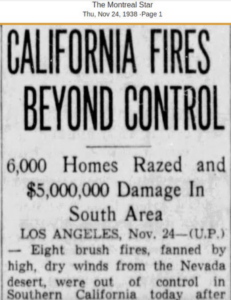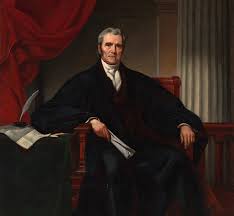Scott Winship asks and answers: “Should we believe the economic data or Americans’ ‘lyin’’ eyes? The answer is yes.” Three slices:
So, are Americans “right to believe their lyin’ eyes,” as Cass claimed in a recent op-ed titled, “Three Cheers for Economic Pessimism”? This formulation begs the question of whether American beliefs about the economy conflict with objective measures. Cass and the declensionists are no more reliable guides to those beliefs than accurate interpreters of economic data. What Americans tell surveyors is consistent with the objective data, for the most part. There has been no long-term decline in economic conditions.
…..
Whenever you read that 80 percent of Americans are dissatisfied with the way things are going in the US, you should remember that 80 percent are satisfied with the way things are going in their own life. Large majorities of Americans are satisfied with a variety of aspects of their lives. Gallup found in January 2023 that 90 percent were satisfied with their family life, 88 percent with their housing, 87 percent with their education, 87 percent with their work, 84 percent with their community, 81 percent with their health, 77 percent with their leisure time, 76 percent with their standard of living, and 71 percent with their household income. These are mostly down from early 2019 but up from 1995.
…..
Economic declensionists might argue that economic sentiment is informed by bad jobless data. Americans’ eyes might be lyin’, but that’s due to lyin’ data. But probing official data on the jobless only reinforces what Americans tell Gallup. Most working-age people who are not in the labor force cite reasons other than an absence of jobs, ranging from being retired or in school to being disabled or taking care of family members. The increase over time in the number of Americans outside the labor force is also primarily due to these factors. Alternative measures put out by the Bureau of Labor Statistics that include discouraged would-be workers who have given up looking for a job or workers who have been involuntarily reduced to part-time employment show trends similar to the official unemployment rate. Using such measures can alter how much joblessness there is, but it doesn’t change the conclusion that involuntary joblessness is at historic lows.
John Cochrane ponders tariffs: (HT W.E. Heasley) A slice:
First, tariffs are an answer. What’s the question? National security? Increase manufacturing employment? Use our pricing power to make the US better off at the expense of our trading partners? Each one recommends a different strategy, and often a different answer. Policy should not be answers in search of questions.
James Taranto writes that “the decline of journalism may have hit rock bottom with the end of Meta’s censorship regime.” Two slices:
The term “fact checking” has two distinct meanings in journalism—one venerable, the other recent and corrupt. The former refers to a process of self-correction in which an editorial staffer retraces a writer’s reportorial steps, inspecting and reinterviewing sources to make sure everything in the story is accurate. The New Yorker and Reader’s Digest were renowned in the industry for their rigorous fact-checking departments.
When you hear the term today, though, it usually refers to something completely different—what the Washington Post’s Glenn Kessler calls “political fact-checking.” This isn’t a behind-the-scenes quality-control practice but a subgenre of news, whose emergence Mr. Kessler dates to the founding of FactCheck.org in 2003. Political fact-checkers don’t seek to ensure that journalists tell the truth but to demonstrate that other people—principally but not only politicians—are liars.
Political fact-checks aren’t simply about accuracy. They delve into more complicated questions of interpretation, emphasis and opinion. A fact-check article typically consists of a politician’s or other target’s statement to be evaluated, an analysis citing facts and authorities, and a conclusion about the statement’s veracity, such as “false” or “mostly true.” Some political fact-checkers employ cheeky ratings for statements they deem to be jiggery-pokery or pure applesauce: Mr. Kessler assigns them as many as four “Pinocchios,” while PolitiFact slaps them with a “pants on fire” label.
The form imitates that of a judicial ruling, which sets forth a matter in dispute, analyzes the underlying facts and applicable law, and then delivers a conclusion resolving the dispute. When the Supreme Court publishes such a document, every page carries the header “Opinion of the Court.” But whereas a court’s opinion carries the authority of law, a journalist’s opinion binds nobody. A political fact-checker is a journalist pretending to be a judge—a counterfeit authority.
…..
Unlike the internet of a quarter-century ago, social media was dominated by a few big companies, Facebook (now Meta) foremost among them. That gave aspiring gatekeepers a new locus of control. In December 2016, Facebook announced that it would contract with political fact-checkers—FactCheck.org, PolitiFact, ABC News, the Associated Press and others—to help it suppress disfavored content. Based on their opinions, Facebook labeled posts as “disputed” or “false,” prevented their authors from advertising or monetizing them and reduced their visibility in other users’ feeds.
This censorship intensified after Joe Biden was elected, sometimes at the government’s direction. The targets included news organizations. In 2021 Facebook suppressed at least two Journal articles for scientific heterodoxy—an op-ed on Covid by Johns Hopkins surgeon Marty Makary (now Mr. Trump’s nominee to lead the Food and Drug Administration) and a review of a book on climate by physicist Steven Koonin, who served in the Obama administration.
Good!
Also good!
Kimberly Strassel argues that the left “spent eight years trying to kill democracy in the name of saving it.” A slice:
It was Mr. Biden—citing Republicans’ supposed mismanagement of Covid—who stripped Americans of basic civil liberties during the pandemic. Mr. Biden—citing the damage of GOP policies—who issued regulations blatantly exceeding the scope of executive power. Mr. Biden—citing the high court’s ruling against his student-loan forgiveness plan as a “mistake” and “wrong”—who thumbed his nose at a coequal branch of government, and issued the plan again. Mr. Biden—citing his “political opponents”—who rewrote presidential power with a never-before-witnessed blanket pardon for anything his son might have done in more than a decade.
Juliette Sellgren talks with Eric Leeper about the fiscal theory of the price level.
Scott Lincicome says about the L.A. wildfires: “Insurance regulations, land management, and other policies didn’t cause the fires but have made things worse.” A slice:
The place to start is California’s onerous regulation of homeowners insurance, which has probably encouraged many Angelenos to live in more fire-prone areas and has kept many of them underinsured or without insurance entirely. As economist Brian Albrecht detailed last week, citing a deep dive paper from his colleagues at the International Center for Law and Economics (ICLE), California’s Proposition 103 forces private insurers to price their products not just below hypothetical market rates but well below their cost — creating “the biggest gap between rates and risk in the nation.” Albrecht adds that the system is also highly inflexible and insanely slow: California’s speed of rate approvals ranked second-to-last among the 50 states (and D.C.) over the last five years, with an average of 236 days for homeowners insurance. And it’s been getting worse.
The country [China] desperately needs a new engine of growth, and that can come only from innovation and disruption. But that is exactly what control freaks are afraid of, and Xi has systematically cracked down on independent entrepreneurs. The very authoritarianism that makes China so scary is what stops it from becoming the leader of the world.


 It is amazing to me that there are people who still take seriously claims by some politicians that they are against “special interests.” All politicians are against their opponents’ special interests and in favor of their own special interests – which, of course, they don’t call special interests.
It is amazing to me that there are people who still take seriously claims by some politicians that they are against “special interests.” All politicians are against their opponents’ special interests and in favor of their own special interests – which, of course, they don’t call special interests. [M]ore than a million American jobs depend directly on exports to Chinese consumers. About 0.5 percent of the U.S. work force would lose their jobs if the U.S. lost access to its third-largest exporting market.
[M]ore than a million American jobs depend directly on exports to Chinese consumers. About 0.5 percent of the U.S. work force would lose their jobs if the U.S. lost access to its third-largest exporting market.
 Precisely because of the exuberantly democratic nature of American politics, the judiciary right from the nation’s beginning acquired a special power that it has never lost. By protecting the rights of minorities of all sorts against popular majorities, it has become a major instrument for both curbing that democracy and maintaining it.
Precisely because of the exuberantly democratic nature of American politics, the judiciary right from the nation’s beginning acquired a special power that it has never lost. By protecting the rights of minorities of all sorts against popular majorities, it has become a major instrument for both curbing that democracy and maintaining it. Indeed,
Indeed, 
